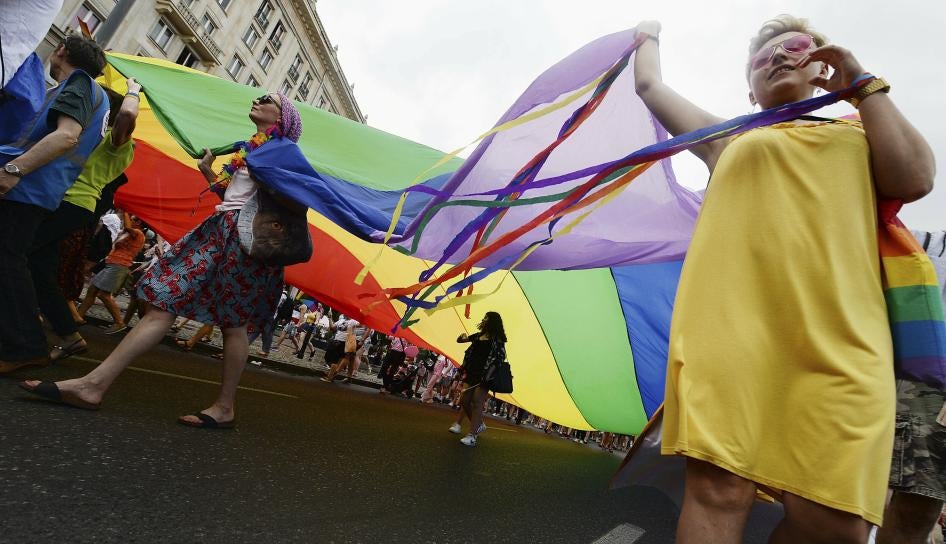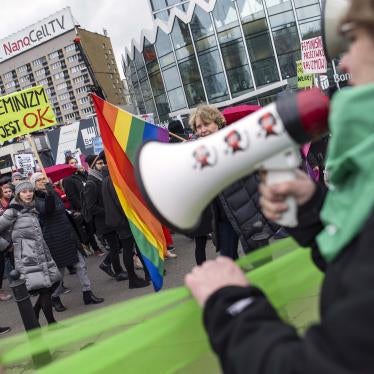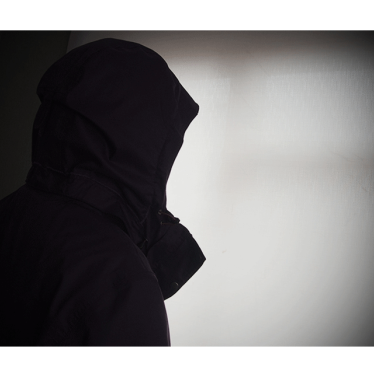For 30 days, beginning January 17, European Union commissioners received daily Twitter notifications linking to personal stories of lesbian, gay, bisexual and transgender (LGBT) Poles who have been harmed by the so-called “LGBT Ideology Free Zones” or anti-LGBT “Family Charters” in nearly 100 Polish regions, towns, and cities.
The tweets were part of a campaign led by two Polish LGBT groups, Campaign Against Homophobia (Kampania Przeciw Homofobii, KPH) and The Equality Foundation (Fundacja Równości, FR), calling on EU Commissioners to initiate an infringement procedure – a legal action that can lead to referral to the European Court of Justice – against Poland. The “LGBT-free zones” and other discriminatory measures, activists asserted in a legal complaint submitted to the European Commission in September, breach Poland’s legal obligations under the EU Charter of Fundamental Rights and a European Council directive for equal treatment in employment and occupation.
The “Infringement Now” campaign is the latest salvo in an ongoing political tug-o-war between a far-right nationalist government, which welcomes the economic benefits of EU membership but shows utter contempt to the obligations associated with it, and advocates for EU institutions to play their role as guardian of the rights protected by EU treaties. Together with the fate of the country’s judiciary and the ongoing pressure on its media and civil society, the rights of LGBT people and of women and girls are among the battlegrounds for Poland’s future.
Last August the EU Commission cancelled grants for six Polish towns that had declared themselves “LGBT-ideology free zones.” While that measure was more symbolic than material, it was a boiling point in a dispute that had been simmering for years.
LGBT rights have symbolic currency on both sides. For the Warsaw mayor and 2020 presidential candidate Rafał Trzaskowski of the centrist Civic Platform Party, being an outspoken LGBT ally speaks to his vision of an inclusive society and pro-EU Poland. In 2019 Trzaskowski signed an LGBT+ declaration for Warsaw, a 10-point plan for overcoming discrimination and promoting equality.
In the wake of the controversy sparked by his pro-LGBT stance, the ruling Law and Justice Party (Prawo i Sprawiedliwość, PiS) intensified its anti-LGBT rhetoric, ensuring that LGBT rights became a key battleground in the 2019 parliamentary elections. And in the run up to the 2020 presidential election, the PiS candidate and president Andrezj Duda signed the so-called “Family Charter.” which opposes same-sex marriage and adoption rights as well as comprehensive sexuality education in schools.
Why do questions around gender and sexuality stoke such intense passions? This scenario is neither new nor unique. Minorities have invariably been scapegoated in situations of conflict. Rights around individual autonomy, in this case, the rights of LGBT people, together with reproductive rights, protections against domestic violence, and sex education have become emblematic of broader social values, Poland’s relationship with the EU and the strength of human rights writ large.
This has been accompanied by other attacks on rights. In July 2020, Poland’s justice minister announced that he would pursue withdrawing the country from the Istanbul Convention that seeks to combat violence against women, including domestic violence. In January, amid widespread protest, a Constitutional Tribunal ruling that virtually bans legal abortion went into effect after the government bypassed Parliament to put the issue before the politically influenced court. A bill that would potentially criminalize anyone providing sex education, is pending.
With PiS returned to power and proceeding apace with its anti-LGBT agenda, LGBT advocates and their supporters are doing their best to use the limited options for redress in Poland. The Polish Ombudsman has challenged the adoption of anti-LGBT declarations before local administrative courts, and succeeded in four cases, although public prosecutors have appealed these decisions. LGBT advocates have appealed to human rights norms that transcend national boundaries, such as the appeal to the European Commission to censure Poland for breaching its human rights obligations. As Bartosz Staszewski, of the Lublin Pride Association said: "We cannot count on our government, we cannot count on our president, the only thing we can count on is the European Union."
Membership of the EU comes with obligations, such as adherence to the EU’s founding values including respect for human rights and the core principles of non-discrimination and tolerance. In December 2017, in response to problematic judicial reforms, the European Commission triggered Article 7 of the EU Treaty against Poland, which can lead to suspension of a member state’s rights if it is found to persistently breach those values.
Given Poland’s sustained attack on the human rights of LGBT people, as well as women and others, the European Commission can and should do more. Initiating an infringement procedure would send a strong message that these kinds of policies have no place in the EU, could press the Polish government to change route, and would offer a chance to the EU Court of Justice to reaffirm states’ obligations to protect, not neglect, their LGBT citizens.
In Poland human rights and tenets of democracy are under threat, including the independence of the judiciary and free press. In this assault, LGBT rights are seen as a soft target. In standing up for the rights of LGBT people in Poland, the EU would be moving not only to protect the rights of a vulnerable minority, but human rights writ large.









